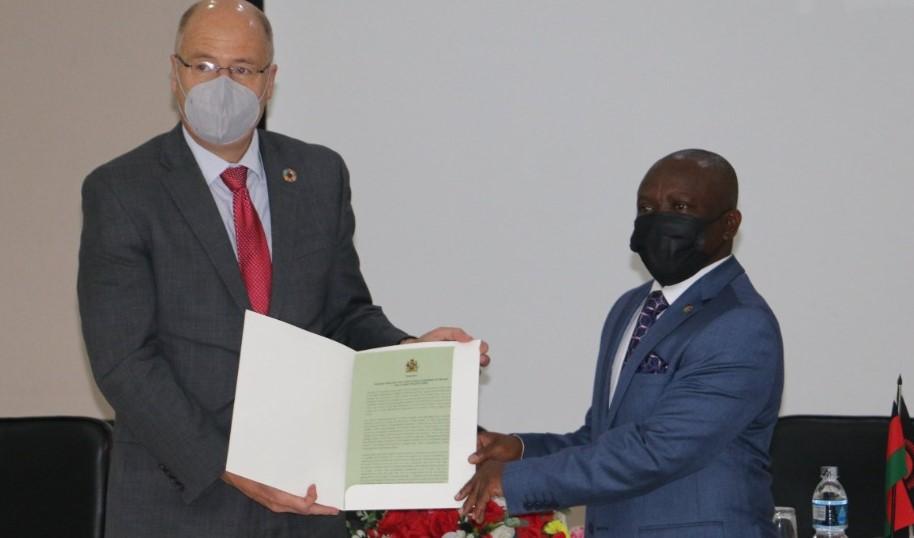Africa-Press – Malawi. United Nations (UN) Resident Coordinator Malawi Rudolf Schwenk says the increased trends in poaching of animals such as elephants and pangolins in Malawi is very worrying and if left unaddressed, wildlife trafficking will continue to be a threat to achievement of sustainable development in the country.
Schwenk made the statement on Wednesday during public announcement on the 4th protocol on prevention and combating of wildlife crime in Lilongwe. Malawi has joined Costa Rica, Gabon and Angola in embracing the United Nations Convention against transnational organized crime on preventing and combating illicit wildlife crime.
The UN Resident Coordinator noted that wildlife crime undermines the economic prosperity of countries, threatens their natural resources, and inhibits benefits derived from legal nature-based enterprises like tourism.
He further said that wildlife crime also erodes social stability and impoverishes citizens as their natural heritage and livelihoods are robbed. He then welcomed efforts which seek to further reinforce measures to stop illicit wildlife trafficking, not only in Malawi, but also in the region and around the globe.
“The sustained national wildlife crimes awareness campaign, legislative reforms, investigations, prosecutions, and interagency cooperation in the fight against these crimes in Malawi are bearing positive results and sending strong messages around the world that Malawi cannot be targeted as a source of illicit wildlife products and a transit route for wildlife traffickers,” he said.
In his remarks, Minister of Tourism, Culture and wildlife Michael Usi said tourism is one of the key drivers toward the attainment of 2063 national vision. Usi added that wildlife crime is one of the factors that affects country’s development as it poses great threat to biodiversity.
He further lamented that uncountable billions of kwachas are lost through wildlife crimes hence negatively affecting the economy of the country as the country’s economy depend much on the natural resources. Usi also called for a collaborative effort among various stakeholders in the country to fight against wildlife crimes.
On his part, Chairperson for the Malawi Parliamentary Conservation Caucus who is also the Chairperson for the Parliamentary Committee on Natural Resources and Climate Change, Welani Chilenga, pledged to provide legislative support through the National Assembly, so as to enable the perpetrators of the vice to get the required punishment. In 2016, Malawi was identified as a hot spot for wildlife crimes aggravated by poor enforcement and weak legislation.
For More News And Analysis About Malawi Follow Africa-Press






